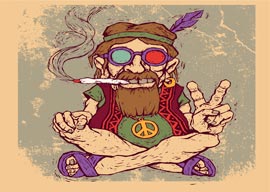
February 05, 2015

Source: Shutterstock
Kristina’s sudden departure”she is hired by a modeling agency”precipitates a psychic crisis in Mark. Although he still loves Prudence, he now sees her as “an outsider, an observer who soaks it [i.e. Western culture] up like a connoisseur, she is not of it.” Thence:
Mark’s new condition, for the sake of honesty and accuracy, must be called by its true name: white pride. His love of the Greek life, admiration for the determination and might of Rome, and respect for individual heroes of Western history, combined to fill his heart with white pride. The Western culture he loved, in which he had found a home, was white culture. “They are my blood, my family,” as he admitted meekly to himself.
The middle third of the book provides an intellectual framework for all this; or, to look at it the other way round, the Mark-Prudence narrative illustrates the issues chewed over in the Logan-Ethan debate. The disturbing effect of Kristina on Mark, for example, keys to a discussion, also drawn from the Greeks, on inner versus outer beauty.
From the progress of the narrative it is plain that the author takes the nationalist side, Ethan’s side, in the central debate; but the universalist arguments are very fairly presented. “Might not a more unified world be more peaceful?” asks Logan, the universalist. Yes, it might. It might also be an iron despotism from which there is no refuge … and so on.
Multicultural universalism was bound to beget white Identitarianism sooner or later. As a nationalist who hates the first thing, I am sympathetic to the second. I can”t be an Identitarian, though; I was born too soon. What was wrong with the Western nations of my childhood, which guarded their ethnic identity and kept immigration to a trickle, not out of Identitarian pride but from simple, commonsensical … prudence?